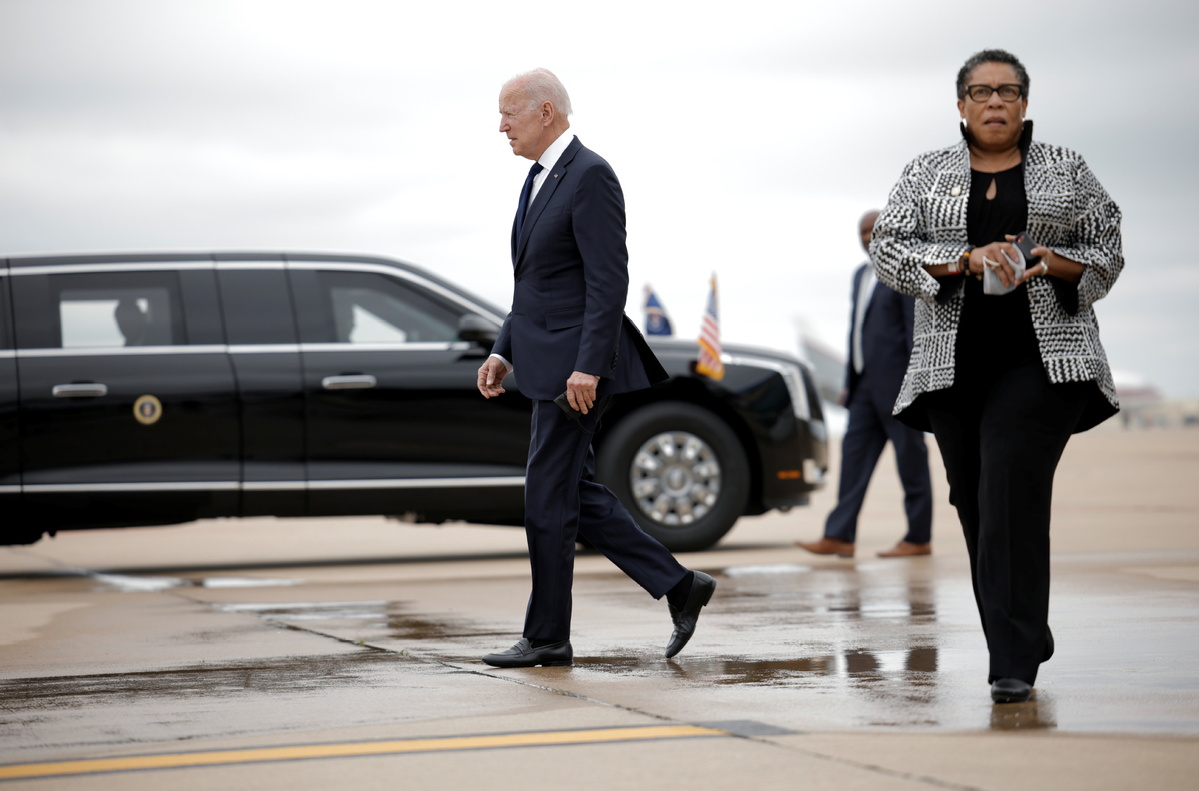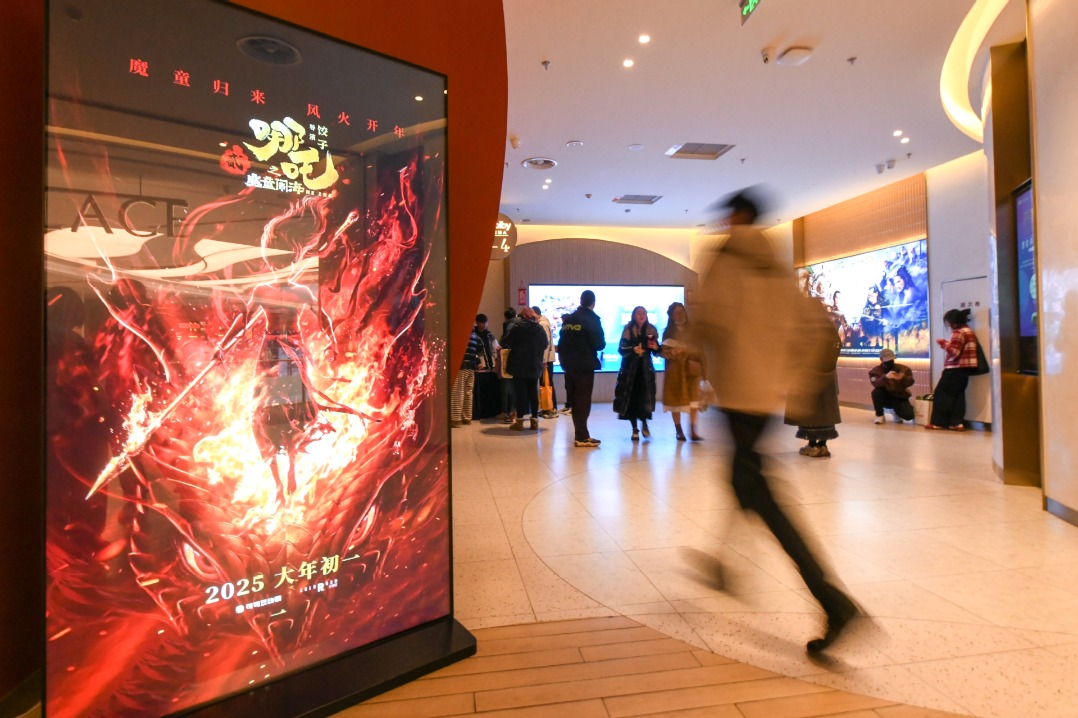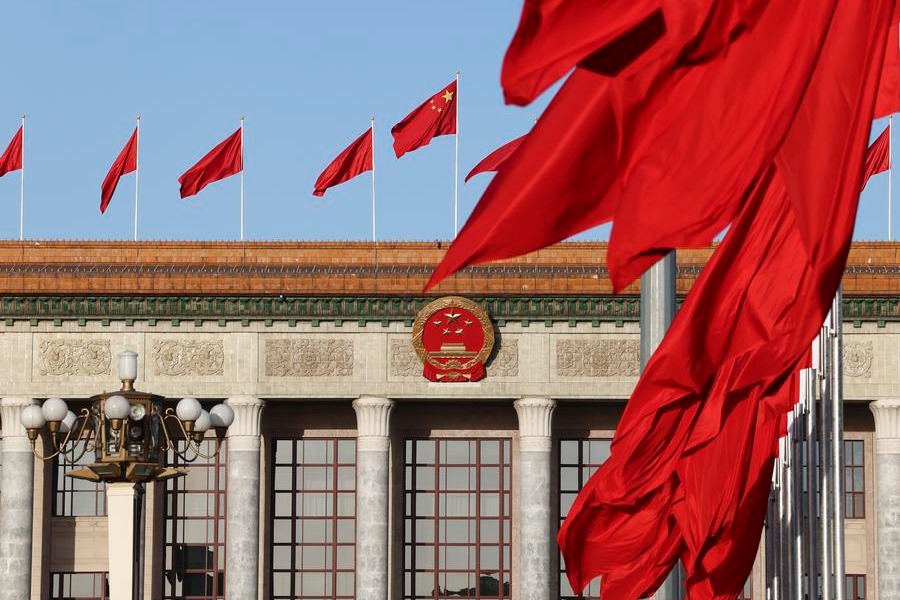Biden to honor forgotten victims of Tulsa race massacre


WASHINGTON — President Joe Biden will take part in a remembrance of one of the nation's darkest — and largely forgotten — moments of racial violence Tuesday when he helps commemorate the 100th anniversary of the destruction of a thriving Black community in Tulsa, Oklahoma.
Biden's appearance, in which he marks the deaths of hundreds of Black people killed by a white mob a century ago, comes amid a national reckoning on racial justice. It stands in stark contrast to then-President Donald Trump's trip a year ago, which was greeted by protests.
Biden will be the first president to participate in remembrances of the destruction of what was known as "Black Wall Street." In 1921 — on May 31 and June 1 — some Tulsans looted and burned the Greenwood district.
He will meet privately with survivors of the massacre. Up to 300 Black Tulsans were killed, and thousands of survivors were forced for a time into internment camps overseen by the National Guard. Burned bricks and a fragment of a church basement are about all that survive today of the more than 30-block historically Black district.
During Tuesday's meeting, Biden will "convey his heartfelt gratitude for their bravery in sharing the stories of the trauma and violence that was wrought on them and their families," said White House principal deputy press secretary Karine Jean-Pierre. Biden also "will explain that we need to know our history from the original sin of slavery, through the Tulsa race massacre to racial discrimination and housing in order to build common ground, to truly repair and rebuild," she said.
America's continuing struggle over race will continue to test Biden, whose presidency would have been impossible without overwhelming support from Black voters, both in the Democratic primaries and the general election.
Biden has pledged to help combat racism in policing and other areas of life following nationwide protests after George Floyd's death a year ago that reignited a national conversation about race. Floyd, a Black man, was killed by white Minneapolis police officer Derek Chauvin, who pressed his knee on Floyd's neck for more than nine minutes.
After Chauvin was convicted in April, Biden said the country's work was far from finished with the verdict, declaring, "We can't stop here." He called on Congress to act swiftly to address policing reform. But he has also long projected himself as an ally of police, who are struggling with criticism about long-used tactics and training methods and difficulties in recruitment.
The Tulsa massacre has only recently entered the national discourse — and the presidential visit will put an even brighter spotlight on the event.
"This is so important because we have to recognize what we have done if we are going to be otherwise," said Eddie Glaude, chair of the Center for African American Studies at Princeton University. Biden's visit, Glaude said, "has to be more than symbolic. To tell the truth is the precondition for reconciliation, and reconciliation is the basis for repair." Biden, while visiting the Greenwood Cultural Center, is set to announce new measures to help narrow the wealth gap between Blacks and whites and reinvest in underserved communities by expanding access to homeownership and small-business ownership.
The White House said the administration will take steps to address disparities that result in Black-owned homes being appraised at tens of thousands of dollars less than comparable homes owned by whites as well as issue new federal rules to fight housing discrimination. The administration is also setting a goal of increasing the share of federal contracts awarded to small disadvantaged businesses by 50% by 2026, funneling an estimated additional $100 billion to such businesses over the five-year period, according to the White House. Historians say the massacre in Tulsa began after a local newspaper drummed up a furor over a Black man accused of stepping on a white girl's foot. When Black Tulsans showed up with guns to prevent the man's lynching, white residents responded with overwhelming force.
Tensions persist a century later.
Organizers called off a separate commemoration of the 100th anniversary of the Tulsa Race Massacre, saying no agreement could be reached over monetary payments to three survivors of the deadly attack. It highlights broader debates over reparations for racial injustice.
Reparations for Black Americans whose ancestors were enslaved and for other racial discrimination have been debated in the US since slavery ended in 1865. Now they are being discussed by colleges and universities with ties to slavery and by local governments looking to make cash payments to Black residents.
Some of Tulsa's Black residents question whether the $20 million spent to build the Greenwood Rising museum in an increasingly gentrified part of the city could have been better spent helping Black descendants of the massacre or residents of the city's predominantly Black north side several miles away from Greenwood.
Disagreements among Black leaders in Tulsa over the handling of commemorative events and millions of dollars in donations have led to two disparate groups planning separate slates of anniversary events.
Biden, who was vice president to the nation's first Black president and who chose a Black woman as his own vice president, backs a study of reparations, both in Tulsa and more broadly, but has not committed to supporting payments. He recently declared the need for America to confront its past, saying, "We must acknowledge that there can be no realization of the American dream without grappling with the original sin of slavery and the centuries-long campaign of violence, fear and trauma wrought upon African American people in this country." He issued a proclamation designating Monday as a "day of remembrance" for the massacre.
Trump visited Tulsa last year under vastly different circumstances. After suspending his campaign rallies because of the coronavirus pandemic, Trump, a Republican, chose Tulsa as the place to mark his return. But his decision to schedule the rally on June 19, the holiday known as Juneteenth that commemorates the end of slavery in the United States, was met with such fierce criticism that he postponed the event by a day. The rally was still marked by protests outside and empty seats inside an arena downtown.
For more AP coverage of the Tulsa Race Massacre anniversary, go to https://apnews.com/hub/tulsa-race-massacre.
































